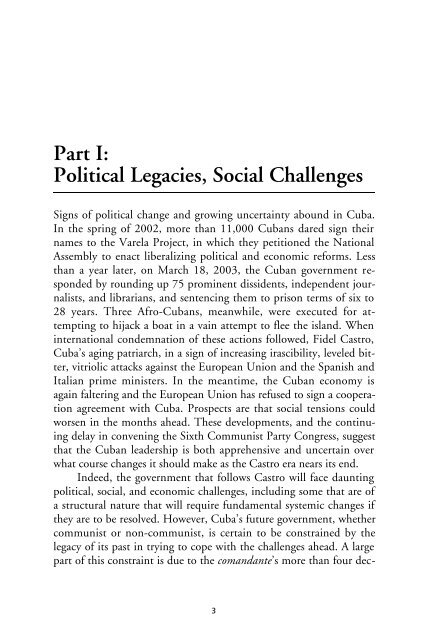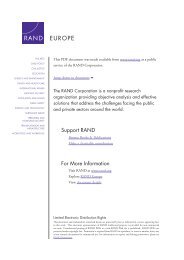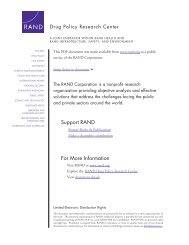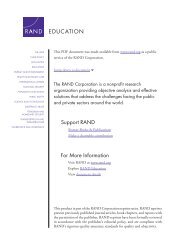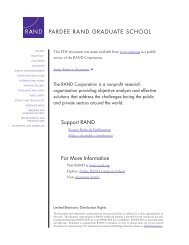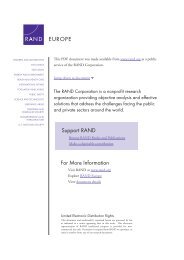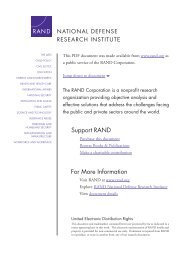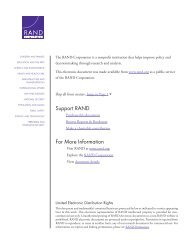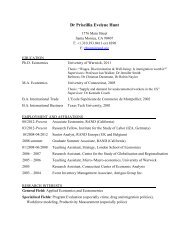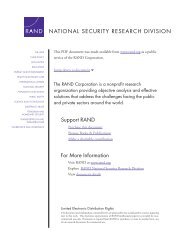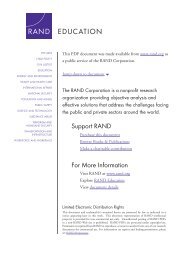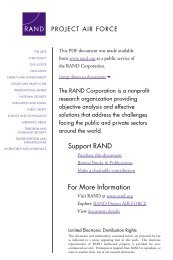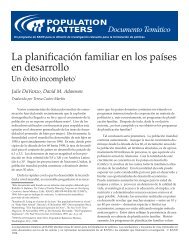Cuba After Castro - RAND Corporation
Cuba After Castro - RAND Corporation
Cuba After Castro - RAND Corporation
You also want an ePaper? Increase the reach of your titles
YUMPU automatically turns print PDFs into web optimized ePapers that Google loves.
Part I:<br />
Political Legacies, Social Challenges<br />
Signs of political change and growing uncertainty abound in <strong>Cuba</strong>.<br />
In the spring of 2002, more than 11,000 <strong>Cuba</strong>ns dared sign their<br />
names to the Varela Project, in which they petitioned the National<br />
Assembly to enact liberalizing political and economic reforms. Less<br />
than a year later, on March 18, 2003, the <strong>Cuba</strong>n government responded<br />
by rounding up 75 prominent dissidents, independent journalists,<br />
and librarians, and sentencing them to prison terms of six to<br />
28 years. Three Afro-<strong>Cuba</strong>ns, meanwhile, were executed for attempting<br />
to hijack a boat in a vain attempt to flee the island. When<br />
international condemnation of these actions followed, Fidel <strong>Castro</strong>,<br />
<strong>Cuba</strong>’s aging patriarch, in a sign of increasing irascibility, leveled bitter,<br />
vitriolic attacks against the European Union and the Spanish and<br />
Italian prime ministers. In the meantime, the <strong>Cuba</strong>n economy is<br />
again faltering and the European Union has refused to sign a cooperation<br />
agreement with <strong>Cuba</strong>. Prospects are that social tensions could<br />
worsen in the months ahead. These developments, and the continuing<br />
delay in convening the Sixth Communist Party Congress, suggest<br />
that the <strong>Cuba</strong>n leadership is both apprehensive and uncertain over<br />
what course changes it should make as the <strong>Castro</strong> era nears its end.<br />
Indeed, the government that follows <strong>Castro</strong> will face daunting<br />
political, social, and economic challenges, including some that are of<br />
a structural nature that will require fundamental systemic changes if<br />
they are to be resolved. However, <strong>Cuba</strong>’s future government, whether<br />
communist or non-communist, is certain to be constrained by the<br />
legacy of its past in trying to cope with the challenges ahead. A large<br />
part of this constraint is due to the comandante’s more than four dec-<br />
3


